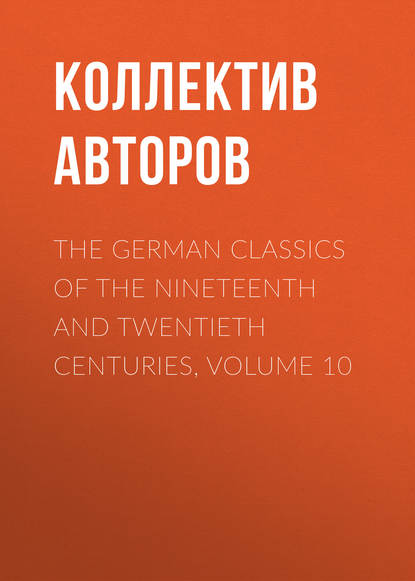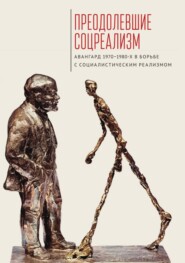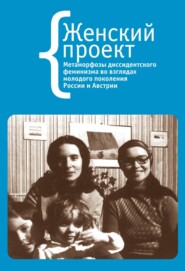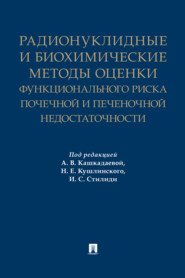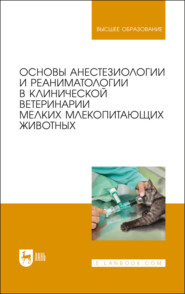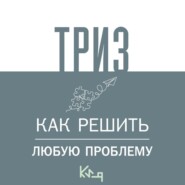По всем вопросам обращайтесь на: info@litportal.ru
(©) 2003-2024.
✖
The German Classics of the Nineteenth and Twentieth Centuries, Volume 10
Настройки чтения
Размер шрифта
Высота строк
Поля
My Dear Heart,—The Emperor received me today, and I handed over my credentials; he received me kindly, is looking well, has grown somewhat stouter, but by no means fat and aged, as he generally is in caricatures. The Empress is still one of the most beautiful women I know, in spite of Petersburg; she has, if anything, grown more beautiful in the past five years. The whole affair was official, ceremonial; I was taken back in court-carriage with master of ceremonies, etc. Next time I shall probably have a private audience. I long for business, for I don't know what to do with myself. Today I dined alone, the young gentlemen were out; the entire evening rain; and at home alone. To whom should I go? In the midst of big Paris I am lonelier than you are at Reinfeld, and sit here like a rat in a deserted house. The only pleasure I have had was sending the cook away because of overcharges. You know my indulgence in this matter, but Rembours was a child in comparison. I am dining for the present in a café. How long that will last, God knows. I shall probably receive a summons, by telegram, to Berlin, in eight or ten days, and then good-by to this song-and-dance. If my opponents only knew what a boon their victory would be to me, and how heartily I desire it! Then Rechberg would, perhaps, out of malice, do his best to have me called to Berlin. You can't have any more aversion to Wilhelmstrasse than myself, and if I am not persuaded that it must be, then I will not go. I consider it cowardice and disloyalty to leave the King in the lurch, under pretence of illness. If it is not to be, then God will permit those who search to find another princillon who will offer himself as cover for the pot. If it is to be, then "s'Bogom" ("with God"), as our Russian drivers used to say, when they took up the reins. * * *
Your v.B.
Bordeaux, July 27, '62.
My Dear Heart,—You cannot refuse to testify that I am a good correspondent; I wrote this morning from Chenonceaux to your birthday-child, and now this evening, from the city of red wine, to you. But these lines will arrive a day later than those, as the mail does not leave until tomorrow afternoon. I left Paris only day before yesterday noon, but it seems to me a week. I have seen very beautiful castles—Chambord, of which the enclosure (torn out of a book) gives only an imperfect idea, corresponds, in its desolation, to the fate of its owner (I hope you know it belongs to the Duke of Bordeaux). In the wide halls and magnificent rooms, where so many kings kept their court, with their mistresses and their hunting, the Duke's only furniture consists now of the children's toys. My guide took me for a French Legitimist, and squeezed out a tear as she showed me the little cannon. I paid for the tear-drop, tariff-wise, with an extra franc, although it is not my vocation to subsidize Carlism. The castle court-yards lay in the sun as quiet as deserted churches; there is a distant view round about from the towers, but on all sides silent woods and heather to the farthest horizon; not a city, not a village, not a farm-house, either near the castle or in the region round it. The enclosed sprigs, specimens of heather, will no longer show you how purple this plant I love so much blooms here, the only flower in the royal garden, and swallows the only living creatures in the castle; it is too solitary for sparrows. The situation of the old castle of Amboise is glorious; from the top you can look up and down the Loire for about thirty miles. Coming from there to this place one passes gradually into the south; wheat disappears, giving way to maize; between, twining vines and chestnut woods, castles and country-seats, with many towers, chimneys, and gables, all white, with high-pointed slate roofs. It was boiling hot, and I was very glad to have a half-coupé to myself. In the evening glorious lightning in the whole eastern sky, and now an agreeable coolness, which I should find sultry at home. The sun set at 7.35; in Petersburg one can see now, without a light, at eleven o'clock. As yet there is no letter for me here; perhaps I shall find one in Bayonne. I shall stay here probably two days, to see where our wines grow. Now, good-night, my angel. Dearest love. Your most faithful v.B.
San Sebastian, August 1, '62.
My Dear Heart,—I could not have believed last year that I should celebrate Bill's birthday this time in Spain. I shall not fail to drink his health in dark red wine, and pray God earnestly to take and keep all of you under His protection; it is now half past three, and I imagine you have just got up from table and are sitting in the front hall at your coffee, if the sun permits. The sun is probably not so scalding there as it is here, but it doesn't do me any harm, and I am feeling splendidly well. The route from Bayonne here is glorious; on the left the Pyrenees, something like the Dent du Midi and Moléson, which, however, are here called "Pie" and "Port," in shifting Alpine panorama, on the right the shores of the sea, like those at Genoa. The change in entering Spain is surprising; at Behobie, the last place in France, one could easily believe one's self still on the Loire; in Fuentarabia a steep street twelve feet wide, every window with balcony and curtain, every balcony with black eyes and mantillas, beauty and dirt; at the market-place drums and fifes, and some hundreds of women, old and young, dancing a fandango, while the men in their drapery looked on, smoking. Thus far the country is exceptionally beautiful—green valleys and wooded slopes, with fantastic lines of fortifications above them, row after row; inlets of the sea, with very narrow entrances, which cut deep into the land, like Salzburg lakes in mountain basins. I look down on such a one from my window, separated from the sea by an island of rocks, set in a steep frame of mountains with woods and houses, below to the left city and harbor. My old friend Galen, who is taking the baths here, with wife and son, received me most warmly; I bathed with him at ten, and after breakfast we walked, or, rather, crawled, through the heat up to the citadel, and sat for a long time on a bench there, the sea a hundred feet below us, near us a heavy fortress-battery, with a singing sentry. This hill or rock would be an island did not a low tongue of land connect it with the mainland. This tongue of land separates two inlets from each other, so you get towards the north a distant view of the sea from the citadel, towards the east and west a view of both inlets, like two Swiss lakes, and towards the south of the tongue of land, with the town on it, and behind it, landward, mountains as high as the heavens. I wish I could paint you a picture of it, and if we both were fifteen years younger then we would take a trip here together. Tomorrow, or day after, I go back to Bayonne. * * * I am very much sunburned, and should have liked best to float on the ocean for an hour today; the water bears me up like a piece of wood. It is still just cool enough to be pleasant. By the time one gets to the dressing-room one is almost dry, and I put on my hat, only, and take a walk in my peignoir. The ladies bathe fifty paces away—custom of the country. * * * I do not like the Spaniards so well as I like their country; they are not polite, talk too loud, and the conditions are in many ways behind those in Russia. Custom-houses and passport annoyances without end, an incredible number of turnpike tolls, four francs for one hour's drive, or else I should stay here still longer, instead of bathing in Biarritz, where a bathing-suit is necessary. Love to our dear parents and children. Farewell, my angel.
Your v.B.
Biarritz, August 4, '62.
* * * I am sitting in a corner room of the Hôtel de l'Europe, with a charming lookout over the blue sea, which drives its white foam between wonderful cliffs and against the light-house. I have a bad conscience, seeing so many beautiful things without you. If one could only bring you hither through the air, I would go right back again to San Sebastian. Imagine the Siebengebirge with the Drachenfels placed by the sea; next to it Ehrenbreitstein, and between the two an arm of the sea, somewhat wider than the Rhine, forcing its way into the land, and forming a round bay behind the mountains. In this you bathe in water transparently clear, and so heavy and salty that you can lie easily right on top of it and can look through the wide gate of rocks to the sea, or landward, where the mountain chains tower up one after another ever higher and ever bluer. The women of the middle and lower classes are strikingly pretty, sometimes beautiful; the men surly and impolite, and the comforts of life to which we are accustomed in civilized lands are entirely lacking. In this respect I find Russia pleasanter to travel in than Spain. What actually drove me out of the country was the swinishness in certain indispensable arrangements, and then the cheating in the hotels, and the tolls. The heat there is no worse than here, and doesn't bother me; on the contrary, I am very well, thank Heaven. Day before yesterday there was a storm whose like I have never seen. I had to make three attempts before I succeeded in climbing the flight of four steps at the head of the pier. Pieces of stone and of trees flew through the air; so I unfortunately gave up my place in a sailing-vessel for Bayonne, as I didn't believe it possible that all would be quiet and cheerful again in four hours' time; so I missed a charming sail along the coast, stayed one day longer in San Sebastian, and left yesterday by the diligence, rather uncomfortably packed in between attractive little Spanish women, to whom I could not speak a single word. Still, they understood Italian enough for me to make clear to them my satisfaction with their exterior. Gr. Gallen and wife were very kind to me. As I was looking for a fan, they presented me with theirs for you; it is simple, but painted in style characteristic of the country. You would like the wife very much; he, too, is a good fellow, but she amounts to more intellectually. I got Bernhard's long-expected letter today. He looks very black over politics, is expecting another child, and is building barns and stables. I long for news from you and the children. * * * Dearest love to all.
Your most faithful v.B.
Biarritz, August 10, '62.
_My Beloved Heart,– * * * I am living about as at Stolpemünde, only without champagne; I drank some with Orloff today, for the first time since I left Paris. In the afternoon I wander about among the cliffs, heaths, and fields, see orchards with aloe, figs, almonds, and borders of tamarinds, then I do some target-shooting, take my bath, sit on the rocks smoking, gazing at the sea, and thinking of you all. Politics I have entirely forgotten; don't read any papers. The 15th has some claims upon me; for propriety's sake I ought to go to Paris, too, since I am in France, so as to congratulate the Emperor, hear his speech, and attend the dinner. But I shall hardly bring myself to the point of traveling over five hundred miles and interrupting the air-and-water cure, which is doing me so much good that I actually hate the thought of the dusty, close air of the royal residence. The Emperor is too reasonable a gentleman to take my absence amiss, and from Berlin I have an honest leave of absence. * * * Farewell, my angel, with dearest love.
Your most faithful v.B.
Hohenmauth, Monday, September 7, '66.
Do you remember, sweetheart, how we passed through here nineteen years ago, on the way from Prague to Vienna? No mirror showed the future then, nor in 1852, when I went over this railway with good Lynar. How strangely romantic are God's ways! We are doing well, in spite of Napoleon; if we are not unmeasured in our claims and do not imagine we have conquered the world, we shall achieve a peace that is worth the trouble. But we are as easily intoxicated as disheartened, and it is my thankless part to pour water into the foaming wine, and to insist that we do not live alone in Europe, but with three other powers which hate and envy us. The Austrians hold position in Moravia, and we are bold enough to announce our headquarters for tomorrow at the point where they are now. Prisoners still keep passing in, and cannon, one hundred and eighty from the 3d to today. If they bring up their southern army, we shall, with God's gracious help, defeat it too; confidence is universal. Our people are ready to embrace one another, every man so deadly in earnest, calm, obedient, orderly, with empty stomach, soaked clothes, wet camp, little sleep, shoe-soles dropping off, kindly to all, no sacking or burning, paying what they can and eating mouldy bread. There must surely be a solid basis of fear of God in the common soldier of our army, or all this could not be. News of our friends is hard to get; we lie miles apart from one another, none knowing where the other is, and nobody to send—that is, men might be had, but no horses. For four days I have had search made for Philip,[20 - Von Bismarck, the oldest nephew.] who was slightly wounded by a lance-thrust in the head, as Gerhard[21 - Von Thadden, commanding a squadron in the First Dragoon Guards.] wrote me, but I can't find out where he is, and we have now come thirty-seven miles farther. The King exposed himself greatly on the 3d and it was well I was present, for all the warnings of others had no effect, and no one would have dared to talk so sharply to him as I allowed myself to do on the last occasion, which gave support to my words, when a knot of ten cuirassiers and fifteen horses of the Sixth Cuirassier Regiment rushed confusedly by us, all in blood, and the shells whizzed around most disagreeably close to the King. He cannot yet forgive me for having blocked for him the pleasure of being hit. "At the spot where I was forced by order of the supreme authority to run away," were his words only yesterday, pointing his finger angrily at me. But I like it better so than if he were excessively cautious. He was full of enthusiasm over his troops, and justly so rapt that he seemed to take no notice of the din and fighting close to him, calm and composed as at the Kreuzberg, and constantly meeting battalions that he must thank with "Good-evening, grenadiers," till we were actually by this trifling brought under fire again. But he has had to hear so much of this that he will stop it for the future, and you may feel quite easy; indeed, I hardly believe there will be another real battle.
When you have of anybody no word whatever, you may assume with confidence that he is alive and well; for if acquaintances are wounded it is always known at latest in twenty-four hours. We have not come across Herwarth and Steinmetz at all, nor has the King. Schreck, too, I have not seen, but I know they are well. Gerhard keeps quietly at the head of his squadron, with his arm in a sling. Farewell—I must to business.
Your faithfullest v.B.
Zwittau, Moravia, July 11, '66.
Dear Heart,—I have no inkstand, all of them being in use; but for the rest I get on well, after a good sleep on camp bed with air mattress; roused at eight by a letter from you. I went to bed at eleven. At Königgrätz I rode the big sandy thirteen hours in the saddle without feeding him He bore it very well, did not shy at shots nor at corpses, cropped standing grain and plum-leaves with zest at the most trying moments, and kept up an easy gait to the last, when I was more tired than the horse. My first bivouac for the night was on the street pavement of Horic, with no straw, but helped by a carriage cushion. It was full of wounded; the Grand Duke of Mecklenburg found me and shared his chamber with me, Reuss, and two adjutants, and the rain made this very welcome to me. About the King and the shells I have written you already. All the generals had a superstition that they, as soldiers, must not speak to the King of danger, and always sent me off to him, though I am a major, too. They did not venture to speak to his reckless Majesty in the serious tone which at last was effectual. Now at last he is grateful to me for it, and his sharp words, "How you drove me off the first time," etc., are an acknowledgment that I was right. Nobody knew the region, the King had no guide, but rode right on at random, till I obtruded myself to show the way. * * * Farewell, my heart. I must go to the King.
Your most faithful v.B.
Vendresse, September 3, 1870.
To MRS. VON BISMARCK:
My Dear Heart,—Day before yesterday I left my quarters here before dawn, but came back today, and have meanwhile been through the great battle of Sedan on the 1st, in which we took some thirty thousand prisoners, and shut the remainder of the French army, which we had chased ever since Bar-le-Duc, into the fortress, where they had to surrender, with the Emperor, as prisoners of war. At five yesterday morning, after I had discussed the terms of capitulation with Moltke and the French generals till one o'clock, General Reille, whom I know, called me up to say that Napoleon wished to speak with me. Without washing or breakfast, I rode towards Sedan, found the Emperor in an open carriage with three adjutants, and three more at hand in the saddle, on the main road before Sedan. I dismounted, saluted him as politely as in the Tuileries, and asked his commands. He desired to see the King. I told him, as was true, that his Majesty's quarters were fourteen miles away, at the place where I am writing now. Upon his question, whither he should betake himself, I offered him, since I was unfamiliar with the region, my quarters in Donchery, a village on the Maas close to Sedan; he accepted them, and drove, escorted by his six Frenchmen, by me; and by Carl, who meanwhile had ridden after me, through the lovely morning, towards our lines. He was distressed before reaching the place because of the possible crowds, and asked me if he might not stop at a lonely workman's house on the road. I had it examined by Carl, who reported that it was wretched and dirty. "N'importe," said Napoleon, and I mounted with him a narrow, rickety stairway. In a room ten feet square, with a fig-wood table and two rush-bottomed chairs, we sat an hour, the others staying below. A mighty contrast to our last interview, in '67, at the Tuileries. Our conversation was difficult, if I would avoid touching on things which must be painful to those whom God's mighty hand had overthrown. Through Carl, I had officers brought from the city, and Moltke requested to come. We then sent out one of the first to reconnoitre, and discovered, a couple of miles off, at Fresnoi's, a little château with a park. Thither I conducted him, with an escort of the Cuirassier body-guards, which was meanwhile brought up, and there we concluded the capitulation with Wimpfen, the French general-in-chief. By its terms, from forty to sixty thousand French—I do not yet know the number more exactly—became our prisoners, with everything they have. The two receding days cost France one hundred thousand men and an emperor. He started early this morning, with all his court, horses, and wagons, for Wilhelmshöhe, at Cassel.
It is an event in universal history, a triumph for which we will thank God the Lord in humility, and which is decisive of the war, even though we must continue to prosecute it against headless France.
I must close. With heartfelt joy I have learned today, from your letter and Marie's, of Herbert's reaching you. I met Bill yesterday, as I telegraphed you, and took him to my arms from his horse before the King's face, while he stood with his limbs rigid. He is entirely well and in high spirits. Hans and Fritz Carl and both the Billows I saw with the Second Dragoon guards, well and cheerful.
Farewell, my heart. Kiss the children.
Your v.B.
Gastein, August 30, '71.
Happy the man to whom God has given a virtuous wife, who writes him every day. I am delighted that you are well, and that you have come to be three, to whom I hope to add myself as fourth on the 7th or 8th. * * * You see I have enough mental leisure here to devote myself to the unaccustomed work of making plans; but all on the presupposition that the excited Gauls do not worry my little friend Thiers to death, for then I should have to stay with his Majesty and watch which way the hare runs. I do not think that likely, but with such a stupid nation as they are anything is possible. Hearty love to both fat children.
Your most faithful v.B.
* * * * *
CORRESPONDENCE OF WILLIAM I. AND BISMARCK[22 - Permission: Frederick A. Stokes Company, New York.]
TRANSLATED BY J.A. FORD
BISMARCK TO KING WILLIAM
Berlin, December 8, '63.
YOUR MAJESTY:—
I have the honor most respectfully to submit a Police report, the printed compilation of the documents relating to the London treaty as commanded, and the telegrams received up to the present. In my most humble opinion it seems expedient to maintain our attitude toward Irminger[23 - Admiral Irminger was charged with the task of notifying in Berlin and Vienna Christian IX.'s accession to the throne; he was granted no audience in Berlin, and left that city on the 5th for Vienna as, in Bismarck's opinion, the Emperor would more easily receive him than the King of Prussia could.] also outwardly in conformity with that of Austria. It is awkward that Sydow is charged with the report of the committee in the Bundestag, for we shall thus always have to make our declaration first, and before Austria; if your Majesty does not command otherwise I will leave him without instructions on this point, and await tomorrow's committee issues, as the next measure, the letter to Copenhagen, will not be thereby delayed.
The final sentence of the Vienna telegram, that Christian IX. rules also in Copenhagen only by virtue of the London treaty, is not quite right; he rules there because the legitimate heir, Prince Friedrich of Hesse, has resigned in his favor. This legal title, which is in itself sufficient, has only been confirmed by the London treaty, and then extended to the Duchies.
v. BISMARCK.
Marginal note by the King:
Prince Friedrich resigned merely in order that the London treaty in favor of Christian IX. might be effectuated.
W.
* * * * *
KING WILLIAM I. TO BISMARCK
Berlin, February 12, '67.
When looking back to the decisive turning point reached by the destinies of Prussia through the glorious fights of the past year, the most distant generations will never forget that the elevation of the Fatherland to new power, and to imperishable honors, that the opening up of an epoch of a rich and, with God's help, a blessing-bringing development are essentially due to your penetration, your energy, and the skilful manner in which you conducted the affairs entrusted to you.
I have decided to show a renewed appreciation of these your most distinguished merits, by the bestowal of a gift of four hundred thousand Thalers.[24 - About £60,000.] The Minister for Finance has been directed to place this sum at your disposal.
It would be in accordance with my wishes if you devoted this gift, the bestowal of which is to manifest my and the Fatherland's thanks, to the purchase of landed property, and entailed the same, so that with the glory of your name it also may remain permanently in your family.
Your grateful and faithfully devoted King,
WILHELM.





